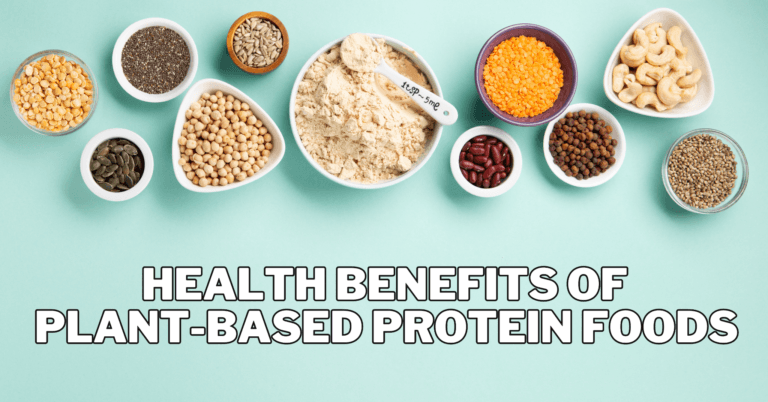Environmental Impacts Of Plant-Based Diets
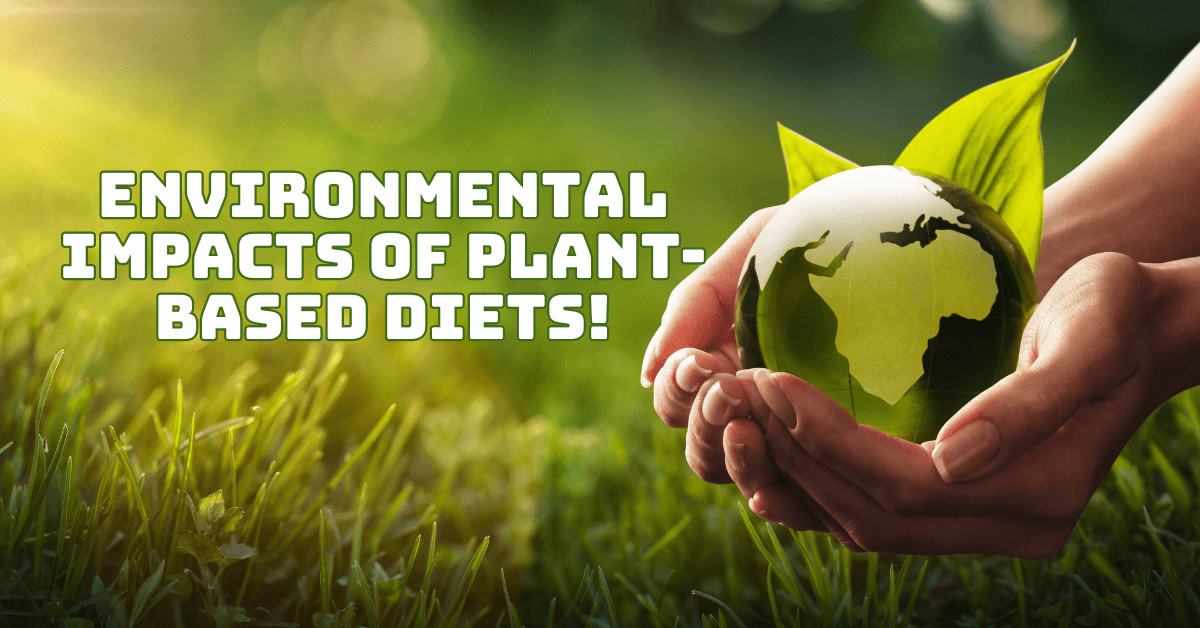
Environmental Impacts Of Plant-Based Diets
The environmental impacts of plant-based diets offer a myriad of positive aspects that resonate on a global scale.
By choosing fruits, vegetables, grains, and legumes over animal products, individuals contribute to reducing greenhouse gas emissions, conserving water resources, and preserving biodiversity.
Plant-based diets require fewer natural resources, as they entail less land, water, and energy for production than meat-intensive diets.
Additionally, cultivating plant-based foods tends to have a lower carbon footprint, mitigating the environmental impacts of agriculture.
Embracing a plant-based lifestyle promotes personal health and fosters sustainability and environmental stewardship.
It is a crucial avenue for combating climate change and fostering a more harmonious relationship with the planet.
Environmental Impacts Of Plant-Based Diets
A plant-based diet benefits the environment in many ways, including reduced greenhouse gas emissions, the preservation of wildlife, and the conservation of water resources.

1. Reduced Greenhouse Gas Emissions
Animal agriculture's methane and nitrous oxide emissions are major contributors to greenhouse gas emissions.
By transitioning to plant-based foods, individuals can substantially reduce their carbon footprint. Plant-based diets typically entail lower emissions associated with livestock farming.
For instance, cultivating crops for human consumption generally requires less land, water, and energy than raising animals for meat, dairy, and eggs.
Additionally, methane emissions from enteric fermentation and manure management are minimized or eliminated in plant-based farming systems.
This shift towards plant-based eating reduces greenhouse gas emissions and aligns with sustainable agricultural practices.
It lessens the environmental impact of food production, conserves natural resources, and promotes a more harmonious relationship with the planet.

2. Conservation Of Water Resources
Animal agriculture demands substantial water resources, including livestock drinking, feed production, and processing.
This high water consumption contributes to water scarcity and strains freshwater ecosystems.
In contrast, plant-based foods typically require less water for cultivation, making them a more sustainable choice.
By realizing the environmental impacts of plant-based diets, individuals can contribute to conserving freshwater resources and alleviating pressure on water supplies and ecosystems.
This is particularly crucial amid rising global water demand and the escalating challenges of agricultural water usage.
Embracing plant-based eating represents a proactive step towards sustainable water management, ensuring the availability of freshwater for future generations and fostering resilience in the face of water-related challenges.
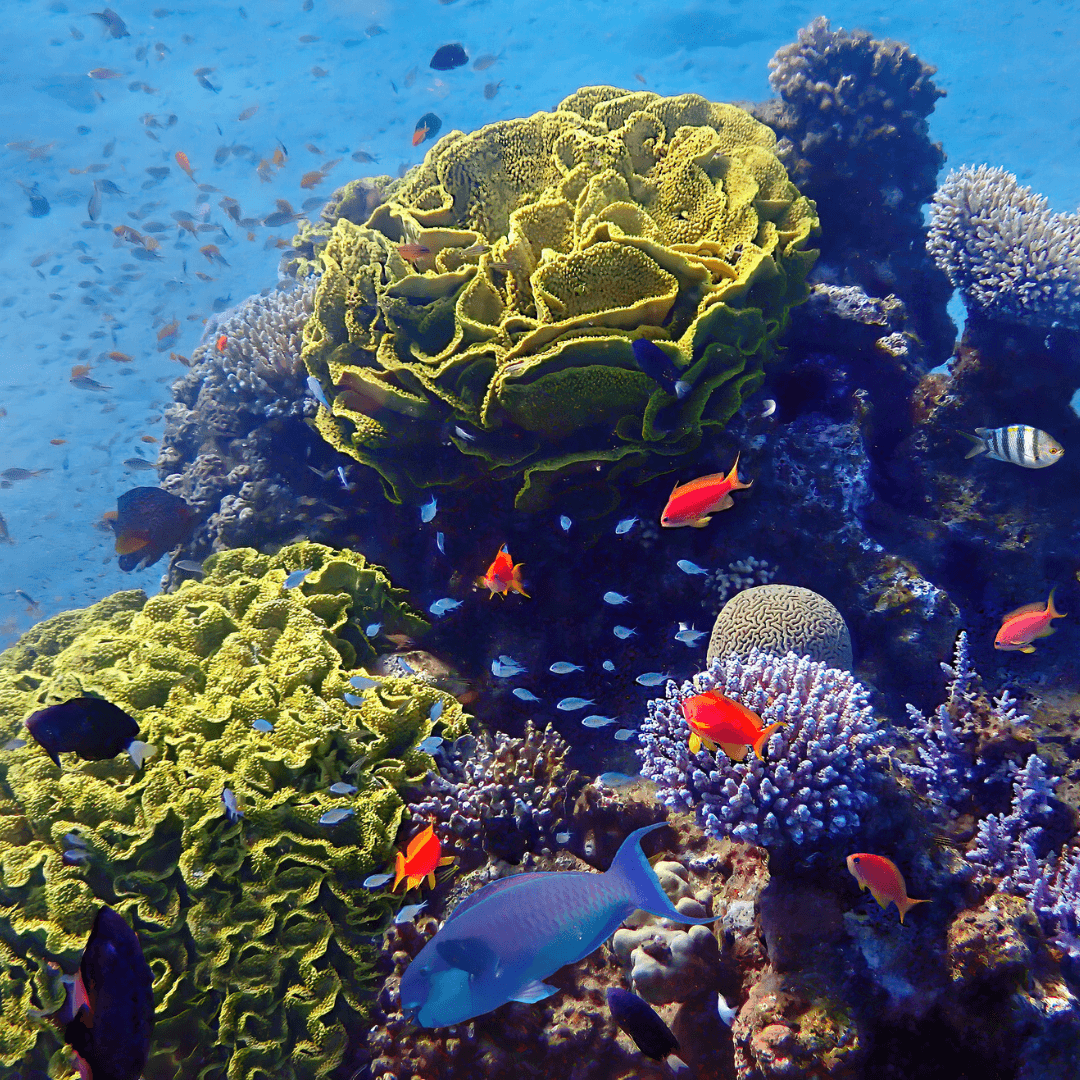
3. Preservation Of Biodiversity
Livestock farming is frequently linked with habitat destruction, deforestation, and land degradation to establish grazing pastures and cultivate animal feed crops.
This habitat loss significantly threatens biodiversity, jeopardizing ecosystems and wildlife populations.
Plant-based diets offer a solution by reducing the demand for animal products, thus lessening the need for expansive agricultural land.
By embracing plant-based eating, individuals can help mitigate habitat destruction and preserve biodiversity by safeguarding natural habitats and ecosystems.
This change supports the development of a more environmentally conscious and animal habitat-protecting approach to food production.
Ultimately, by choosing plant-based foods, individuals contribute to preserving biodiversity, ensuring ecosystems' health and resilience for future generations.
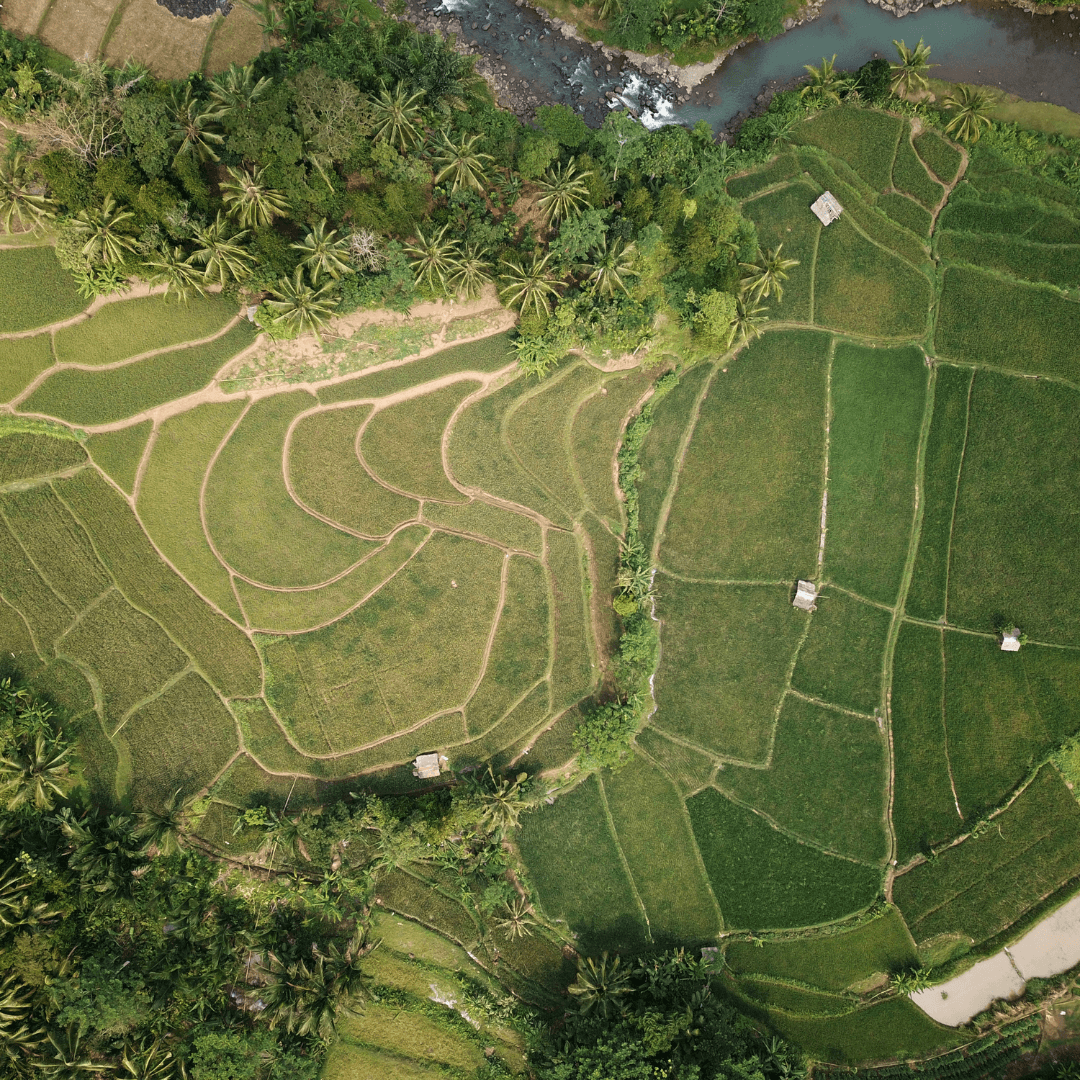
4. Reduction Of Land Use
Animal agriculture demands extensive land for grazing livestock and cultivating feed crops like soy and corn.
This expansion frequently results in deforestation and the conversion of natural habitats, leading to biodiversity loss and ecosystem disruption.
A plant-based diet's environmental benefits offer a sustainable alternative, requiring less land for cultivation.
People can help preserve natural habitats and ecosystems by adopting plant-based eating habits, enabling reforestation efforts to mitigate climate change.
This shift promotes a more efficient use of land resources, reduces pressure on ecosystems, and contributes to biodiversity conservation.
Ultimately, embracing plant-based diets supports the preservation of natural landscapes and fosters a more sustainable relationship with the environment.

5. Mitigation Of Deforestation
Deforestation is a key result of animal agriculture, especially in areas like the Amazon rainforest, where large land areas are destroyed for cattle pastures and crop production.
Plant-based diets provide a solution by reducing the demand for land conversion for livestock farming.
Opting for plant-based foods over animal products helps mitigate deforestation by alleviating pressure on forests and preserving valuable ecosystems.
This dietary shift protects biodiversity and promotes environmental sustainability on a global scale.
By embracing the ecological advantages of a plant-based diet, individuals actively preserve crucial forest habitats, nurturing a healthier planet for present and future generations.

6. Reduction Of Water Pollution
Since livestock husbandry frequently results in the discharge of nutrient-rich runoff into waterways, it is a major source of environmental pollution.
This runoff can contain excess nutrients from animal waste and fertilizers, contributing to water pollution and eutrophication and harming aquatic ecosystems.
Plant-based diets offer a solution by reducing the need for intensive animal agriculture, thereby mitigating water pollution.
By choosing plant-based foods, individuals can minimize the environmental impact of livestock farming and help protect water quality.
This shift promotes sustainable food production practices that prioritize environmental conservation and safeguard the health of freshwater ecosystems.
Ultimately, embracing plant-based eating reduces water pollution and supports preserving clean water sources for humans and wildlife.

7. Improvement Of Soil Health
Farming methods centred around plants, such as crop rotation and organic agriculture, improve soil health and fertility.
Crop rotation alternates crops in fields to replenish soil nutrients, control pests, and reduce erosion.
Composting and biological pest management are natural techniques used in organic farming instead of synthetic fertilizers and insecticides.
These techniques promote sustainable agriculture and improve soil health, enhancing water retention and microbial diversity.
This boosts crop yields and resilience to environmental stressors. Plant-based farming reduces ecological impacts such as pollution and habitat destruction by minimizing reliance on synthetic inputs.
Improving soil health via plant-based farming ensures sustainable agriculture, offering nutritious crops and safeguarding the environment for future generations.

8. Conservation Of Energy Resources
Plant-based diets preserve energy resources substantially better than diets abundant in animal products.
The energy input required for raising livestock and processing animal products far exceeds that needed for growing plant-based foods.
By choosing plant-based diets, individuals reduce the energy demand associated with animal agriculture, including feed production, transportation, and processing.
This transition encourages a more effective utilization of energy in food production and distribution systems, thereby contributing to the overall conservation of energy.
Adopting plant-based eating habits promotes sustainability and improves personal health by lowering the environmental effect of food production and consuming less energy. A plant-based diet also has ecological advantages.

9. Reduction Of Air Pollution
Livestock farming is a significant source of air pollutants, releasing ammonia and methane into the atmosphere.
The main sources of ammonia are animal dung and fertilizers used in feed crop production.
Ammonia can aggravate respiratory conditions and deteriorate air quality. It also forms fine particulate matter and ground-level ozone.
Methane is a powerful greenhouse gas primarily responsible for climate change and global warming.
When animal dung breaks down and digests, it is discharged. People who adopt a plant-based diet reduce their environmental impact since they raise fewer animals, reducing the quantity of toxins they release into the atmosphere.
Adopting a plant-based diet encourages the protection of public health, the fight against climate change, and cleaner air.
10. Promotion Of Sustainable Food Systems
Plant-based diets promote sustainable food systems by prioritizing efficiency, reduced environmental impact, and ecosystem preservation.
Unlike animal agriculture, which often involves resource-intensive practices, plant-based diets require fewer resources for food production, such as water, land, and energy.
This efficiency minimizes ecological strain and mitigates greenhouse gas emissions associated with intensive farming.
Additionally, plant-based diets foster biodiversity by curbing habitat destruction and supporting healthier ecosystems.
Individuals contribute to developing a more sustainable food system by embracing plant-based eating.
This shift ensures food security, environmental resilience, and improved well-being for present and future generations, laying the foundation for a more sustainable and harmonious relationship between humanity and the natural world.

Health Benefits Of Plant-Based Eating
1. Improved Heart Health
Rich in fruits, vegetables, nuts, and seeds, plant-based diets help lower cholesterol and reduce heart disease risk.
These foods are high in antioxidants, fibre, and healthy fats, which support heart health by improving blood pressure, reducing inflammation, and promoting healthy arteries. Regular consumption can contribute to a stronger, healthier cardiovascular system.
2. Better Weight Management
Plant-based diets are great for managing weight because they are frequently lower in fat and calories.
High in fibre, these foods help you feel fuller for longer, reducing your overall calorie intake.
Focusing on whole grains, vegetables, and fruits can help you effectively manage your weight or lose excess pounds while still enjoying a satisfying diet.
3. Enhanced Digestion
Dietary fibre from plant-based diets helps to maintain a healthy digestive system by giving stool more volume and promoting regular bowel motions.
This high-fibre content promotes a healthy digestive tract and helps ward off constipation.
Including plenty of fruits, vegetables, legumes, and whole grains in your diet can enhance overall digestive health.
4. Lower Risk of Chronic Diseases
A lower incidence of chronic illnesses like type 2 diabetes, hypertension, and some malignancies has been associated with plant-based diets.
Rich in antioxidants, fibre, and healthy fats, these diets help regulate blood sugar levels, reduce inflammation, and improve overall health.
A plant-based lifestyle can contribute to long-term disease prevention and better health outcomes.
5. Increased Energy Levels
Plant-based diets offer abundant vitamins, minerals, and antioxidants, enhancing energy and overall vitality.
Nutrient-rich foods like fruits, vegetables, and whole grains help improve metabolic function and support sustained energy throughout the day. This nutrient density can contribute to a more vibrant and active lifestyle.
6. Better Skin Health
The antioxidants in fruits and vegetables combat oxidative stress and inflammation, promoting healthier skin.
These nutrients help reduce signs of aging, such as wrinkles and dullness, by supporting collagen production and protecting skin cells.
A diet rich in colourful plant-based foods can lead to a clearer, more youthful complexion.
7. Improved Mental Clarity
A diet rich in whole plant foods can enhance cognitive function and mental clarity. Nutrient-dense foods like berries, leafy greens and nuts provide essential vitamins and antioxidants that support brain health.
These nutrients help improve focus, memory, and overall mental performance, contributing to clearer thinking and better cognitive function.
8. Environmental Benefits
Reducing animal product consumption lowers greenhouse gas emissions, conserves water, and reduces deforestation.
These environmental benefits help combat climate change and preserve natural resources.
A healthier planet can improve overall health by ensuring cleaner air and water, positively impacting well-being and quality of life.
What Are The 4 Environmental Influences On Your Food Choices?
1. Cultural And Social Norms
Cultural and social norms encompass dietary practices and traditions unique to each culture or society, influencing what foods are considered acceptable, preferred, or taboo.
Family traditions and social interactions further shape food preferences and eating habits, impacting meal choices, preparation methods, and eating patterns.
These norms often dictate the types of foods consumed during celebrations, religious events, and daily life, reflecting cultural identity and values.

2. Economic Factors
Economic factors include food costs and personal financial status, which greatly influence food choices. People with limited budgets may prioritize cheaper, often less nutritious options.
Accessibility to affordable, healthy food varies, with higher-income individuals generally having better access to a diverse range of nutritious foods.
Economic conditions also affect food availability, impacting purchasing decisions and overall diet quality.

3. Marketing And Advertising
Marketing and advertising strategies significantly shape food choices by influencing consumer preferences and demand, especially among children.
Advertisements often promote high-calorie, low-nutrient foods through appealing visuals and persuasive messages.
Consumption of unhealthy foods may rise due to this exposure, affecting eating patterns and general health.
Marketing also employs tactics like celebrity endorsements and product placements to make certain foods more attractive and desirable.
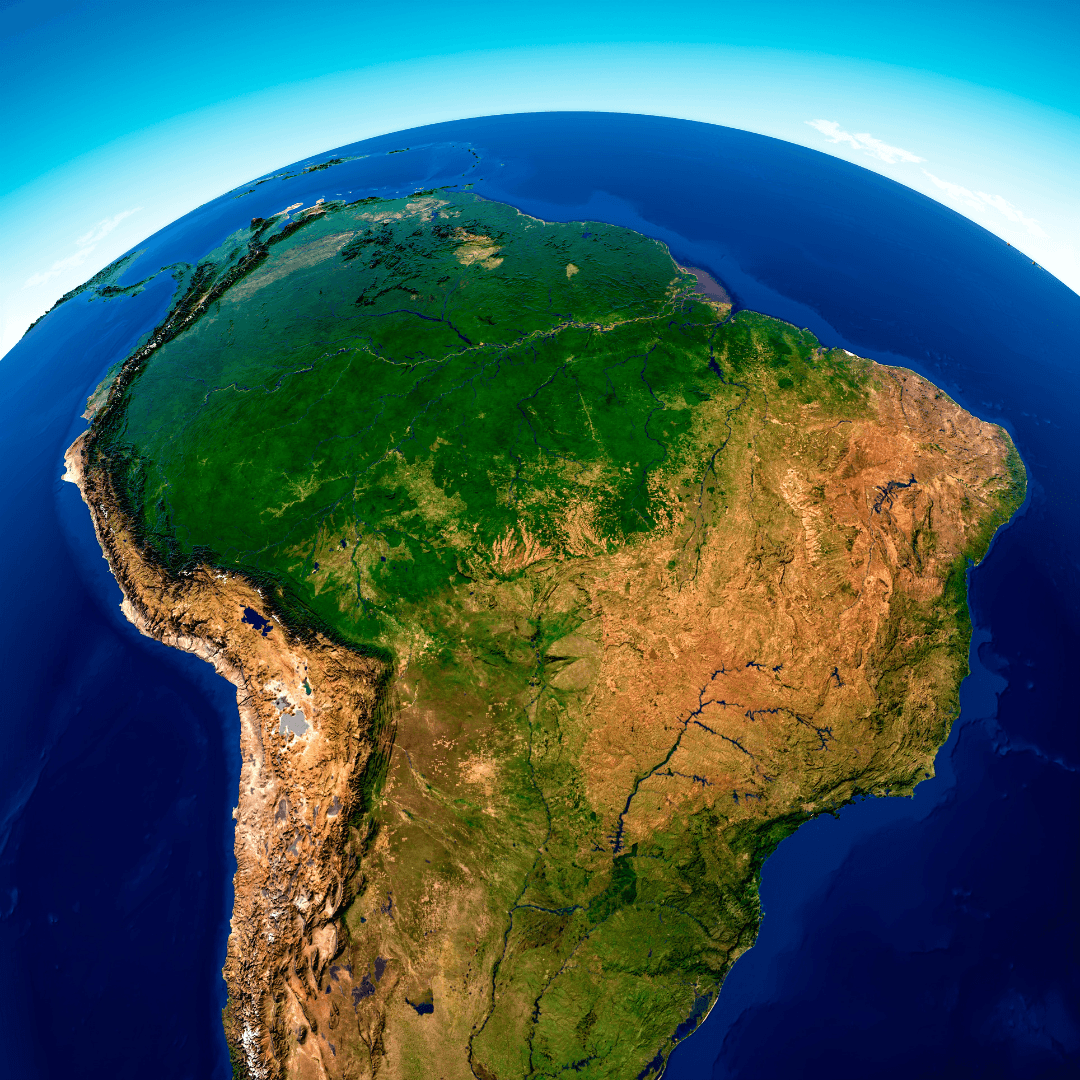
4. Physical Environment
The physical environment affects food choices through the availability and accessibility of food in places like grocery stores, restaurants, and markets.
Urban design, transportation options, and the proximity of food outlets play key roles. Areas with abundant healthy food options promote better dietary choices.
In contrast, food deserts, with limited access to nutritious foods, often lead to reliance on unhealthy, processed options, impacting overall diet quality.
FAQ
1. Does A Plant-Based Diet Support Biodiversity?
Answer: Yes, a plant-based diet supports biodiversity by reducing the need for large-scale animal farming, which often leads to habitat destruction and monoculture farming practices.
Diverse plant agriculture can enhance soil health and support a wider range of plant and animal species.
2. What Role Do Plant-Based Diets Play In Reducing Deforestation?
Answer: By reducing the demand for animal products, plant-based diets can lower the need for deforestation to create pastureland and grow feed crops, helping to preserve forests and their ecosystems.
3. Is Soy Production Bad For The Environment?
Answer: Cultivating soybeans can have beneficial and detrimental effects on the environment.
While soybeans are a relatively efficient source of protein, the environmental impacts of soy cultivation vary depending on factors such as deforestation, monoculture farming practices, and pesticide use.
Sustainable soy production methods, such as agroforestry and organic farming, can help mitigate these impacts and promote environmental conservation.
4. Is Palm Oil Bad For The Environment?
Answer: Palm oil production has been associated with significant environmental issues, including deforestation, habitat destruction, biodiversity loss, and greenhouse gas emissions.
Threatening the habitats of endangered animals like Sumatran tigers and orangutans, large-scale palm oil plantations frequently replace tropical rainforests.
Reducing environmental damage can be achieved by selecting items that use sustainable palm oil or other oils.
5. Why Are Exotic Fruits Bad For The Environment?
Answer: Exotic fruits often incur environmental costs due to long-distance transportation, water-intensive cultivation, and habitat disruption.
Shipping them globally generates greenhouse gas emissions, while cultivation demands water and energy resources.
Monoculture farming for exotic fruits can lead to habitat destruction and biodiversity loss.
Choosing locally grown and seasonal fruits reduces the environmental footprint associated with transportation and cultivation, promoting sustainability and minimizing ecological harm.
6. Why Are Eggs Bad For The Environment?
Answer: Eggs can have environmental drawbacks primarily due to the intensive resource requirements of poultry farming.
Large-scale egg production contributes to greenhouse gas emissions, as poultry require feed production, transportation, and manure management.
Furthermore, the concentration of poultry in confined spaces can lead to pollution issues like nutrient runoff.
However, sustainable practices such as free-range or pasture-raised methods can mitigate some of these environmental impacts by promoting animal welfare and reducing resource intensity.
7. Why Are Shrimp Bad For The Environment?
Answer: Shrimp farming and harvesting can pose significant environmental concerns. Intensive shrimp farming often involves clearing mangrove forests and vital ecosystems that support biodiversity and protect coastlines.
Additionally, shrimp farms can contaminate water from excess feed, antibiotics, and waste.
Furthermore, shrimp production has a high carbon footprint due to energy-intensive processes such as aeration and water treatment.
Overfishing of wild shrimp stocks also disrupts marine ecosystems. Sustainable shrimp aquaculture and responsible seafood sourcing can help mitigate these environmental impacts.
Conclusion
In conclusion, there is no denying the advantages of a plant-based diet for the environment.
Our dietary decisions significantly impact our world's health, from lowering greenhouse gas emissions to protecting biodiversity and conserving water.
By embracing plant-based foods, individuals can contribute to mitigating climate change and promoting sustainability in agriculture.
Moreover, the shift towards plant-based eating aligns with an ethos of environmental stewardship, encouraging a more harmonious relationship with the natural world.
As we strive to create a more sustainable future, incorporating more plant-based foods into our diets emerges as a powerful and accessible solution.
Let us continue to explore and embrace the myriad benefits of plant-based living for the well-being of both ourselves and our planet.
I trust you enjoyed reading the article about the Environmental Impacts Of Plant-Based Diets. Please stay tuned. More blog posts will be posted very shortly.
JeannetteZ
>>>Please click here to read my Vegan Travel Guides To World Destinations<<<
>>>Do You Want To Learn How To Create Delicious, Cruelty-Free, Healthy AND 100% Vegan Meals? Try These Awesome Vegan Cooking Courses With A Free 7-DAY MEMBERSHIP<<<
Your Opinion Is Important To Me
Do you have thoughts, ideas, or questions? I would love to hear from you. Would you mind leaving me your questions, experiences, and remarks about the Environmental Impacts Of Plant-Based Diets in the comments section below? You can also email me at Jeannette@LivingTheVeganLifestyle.org.
Disclosure
This post may contain affiliate links. I earn from qualifying purchases as an Amazon Associate and other affiliate programs. Please read my full disclosure.
You might also enjoy these blog posts:
Best Nonmeat Sources Of Vitamin B12
Why You Should Go Vegan – A Guide
Cruelty-Free Vegan Cosmetics – Love The Animals
The Definitive Guide To Vegan Fashion And Style



